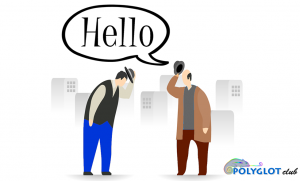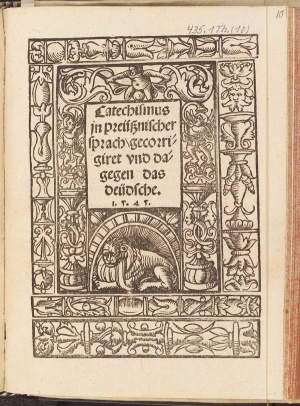Difference between revisions of "Language/Prussian/Vocabulary/How-to-Say-Hello-and-Greetings"
< Language | Prussian | Vocabulary
Jump to navigation
Jump to search
| Line 63: | Line 63: | ||
==Sources== | ==Sources== | ||
* http://users.elite.net/runner/jennifers | |||
* https://en.wikibooks.org/wiki/Prussian/Lesson_1 | |||
* | |||
==Free Prussian Lessons== | ==Free Prussian Lessons== | ||
Revision as of 20:34, 23 January 2023
🤗 Prussian Greetings for Everyday Life
Hi Prussian learners! 😃
Do you want to learn how to say “Hello” in Prussian?
Greetings are an important part of any language because they allow you to connect and communicate with others.
If you’re planning a trip to the country or are trying to learn Prussian, keep reading to discover some of the most important greetings.
Let’s get started! 🤗
Greetings
| English | Prussian |
|---|---|
| general greeting spoken in the Samlandian dialect of Poland | Kaīls |
| morning greeting spoken in the Samlandian dialect of Poland | Kaīls anksteīnai |
| how are you? | Kāi ēit di? |
| how are you? | Kāi tebbei ēit di? |
| how are you? | Kāi tū gīwa? |
| welcome greeting spoken to a man | Kaīls pergūbuns |
| welcome greeting spoken to a woman | Kaīls pergūbusi |
| welcome greeting spoken to a group of people | Kaīls pergūbusis |
| Good evening! | Labban bētan! |
| Good night! | Labban nakts! |
| Goodbye! | Ērdiw! / Deiwūtiskan! |

